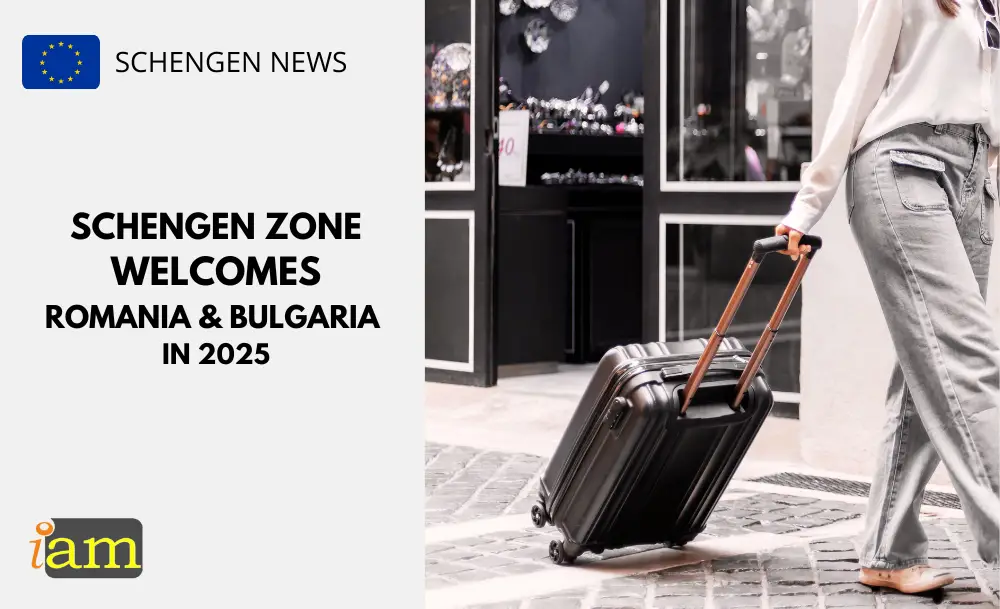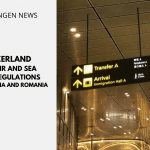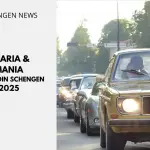Schengen Zone Welcomes Romania and Bulgaria in 2025

As of January 1, 2025, Romania and Bulgaria have become the newest members of the Schengen Zone, expanding the European Union's borderless countries.
The Schengen Zone enables residents to travel freely between member countries without passport checks, removing land border controls among member states.
This milestone concludes a prolonged wait of over a decade for full Schengen membership.
The decision, confirmed at the Justice and Home Affairs Council meeting on December 12, 2024, marks the removal of internal land border checks between and within Romania and Bulgaria.
This follows their partial accession to the Schengen Zone by air and sea on March 31, 2024.
Overcoming Austria’s Opposition
Despite meeting technical criteria as early as 2012, Romania and Bulgaria faced persistent resistance from Austria, which cited concerns over irregular migration. Austria’s veto delayed their accession, even as the two countries gained partial Schengen membership in early 2024.
Austria’s stance shifted in December 2024 when Interior Minister Gerhard Karner announced the lifting of the veto regarding land borders, stating:
“After ‘Schengen Air,’ ‘Schengen Land’ is now open to Romania and Bulgaria.”
This decision followed a pivotal meeting on November 22, 2024, involving the interior ministers of Austria, Romania, and Bulgaria, hosted by Hungary during its presidency of the EU Council.
Romania’s Prime Minister, Marcel Ciolacu, expressed optimism after the meeting, noting,
“Considering all these concrete aspects, I am confident that after 13 years, Romania will achieve full Schengen accession by the end of the year.”
While Romania and Bulgaria now enjoy full membership, a condition from the Budapest agreement stipulates that land border controls between Hungary and Romania, and between Romania and Bulgaria, will remain in place for at least six months. These measures aim to address potential threats to public order and security.
A Significant Milestone for the EU
The full accession of Romania and Bulgaria to the Schengen Zone underscores the EU’s commitment to integration and cooperation. This development not only strengthens the Schengen Zone but also reaffirms the importance of overcoming political hurdles to achieve unity among member states.
With the addition of Romania and Bulgaria, the Schengen Zone’s expansion enhances connectivity and economic opportunities, benefiting millions of citizens and travellers across Europe.
Citizens of Romania and Bulgaria can travel within the Schengen Area using their EU ID instead of their passports. Non-EU nationals would need a Schengen Visa to enter Romania and Bulgaria.
If you need help with your Schengen Visa application, do not hesitate to reach out to IaM.
What are your thoughts on this issue? Talk to us in the comment section below. Or if you need more advice on the above, contact us for further travel & immigration advice.
Check out the deals we have found below and tell us your travel plans.
Check out the offers and discounts from:
And because of the pandemic, don’t forget to get your travel insurance, which will cover you for flight disruptions and pandemic related matters.
IaM can help with your visa application to Europe, the United States, the UK & other countries
If you need help with a US visa, a UK Visa, or a visa to Europe, including help with appointment booking obligations, IaM can help. For more information and advice on US immigration, UK immigration law and US visa applications or if you need any help or assistance please, reach out to your Visa Coordinator at IaM.
Some of our posts include affiliate links. If you choose to purchase any of these products, we might get a small commission. For more information, check out our TOS.
- Travel Alert: UK Government Issues New Advice for India and Pakistan - 8 May 2025
- UK May Tighten Visa Rules for Some Nationalities - 7 May 2025
- Romania Off US Visa-Free List - 6 May 2025









